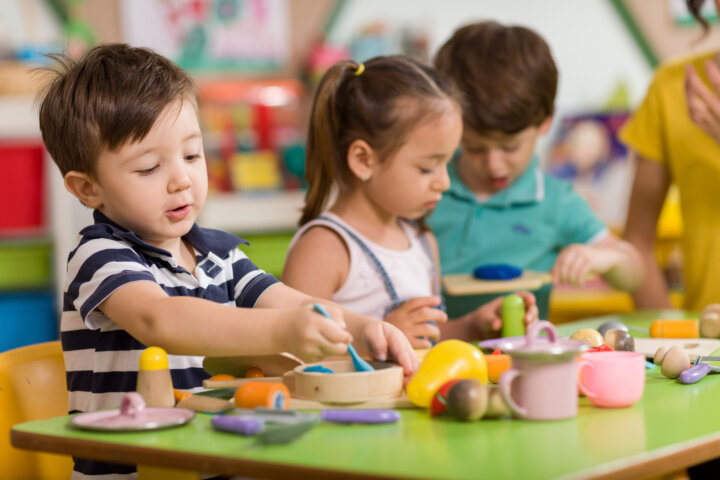Så gör(s) idrottande flickor: Iscensättningar av flickor inom barn- och ungdomsidrotten
Vilka flickor är det man behöver satsa på inom idrottsrörelsen och varför? Vad menas med att satsa på flickors idrottande? Det har Jenny Svender, verksamhetsutvecklare inom elitidrott och utbildning på Riksidrottsförbundet, undersökt i sin avhandling.
Jenny Svender
Karin Redelius, Docent, Gymnastik- och idrottshögskolan. Lars-Magnus Engström, Professor Emeritus, Gymnastik- och idrottshögskolan
Kari Fasting, Professor, Norges idrettshøgskole (NIH), Seksjon for kultur og samfunn
Stockholms universitet
2012-12-15
Så gör(s) idrottande flickor: Iscensättningar av flickor inom barn- och ungdomsidrotten
Discursive constructions of girls in a sports initiative: How sporting girls are represented and the working of power
Institutionen för pedagogik och didaktik
Discursive constructions of girls in a sports initiative: How sporting girls are represented and the working of power
The context of this thesis is a four-year sports initiative called the Handshake which was launched and funded by the Swedish government and specifically targets girls. The Special Sports Federations were assigned the task of distributing the money to the local sports clubs. The clubs could apply for funding in order to carry out local projects. In the study, project applications from eight different sports were collected; both female- and male-dominated, and gender equal sports.
This thesis focuses on the dominant ways of talking about girls and girls’ sport as well as the processes that shape them. Inspired by feminist post-structural theory and Foucault, the aim of this study is to examine how a special initiative for girls’ sport frames girls and their sport. The aim is also to analyze possible conditions of discourse for constructions of gender in texts specifically focusing on girls’ sports participation. The central questions are: How are girls and girls’ sport represented? In what ways and with which form of power, technologies, and techniques are girls constructed and positioned?
The analysis shows how the regulatory and disciplinary processes operate in the government initiative. The identification of a specific group of girls in the Handshake initiative is an important component in the exercise of power, not least because it will inevitably convey and produce “truths” about the girls’ group. The initiative produces a number of ideas about girls and their sport, which girls are in need of special projects (and which are not) and in what way. The constructions of girls are not neutral, but normative. The position the sports movement gives itself, namely, a good and significant social force, implies that the problem lies elsewhere. Girls, and not the sport, become bearers of problem characteristics, they are obliged to change and improve. The norms, structures, and processes that cause normalization remain unchanged.
Relaterade länkar

Svenska som andraspråk
 Åk F–Vux
Åk F–Vux
När leken inte fungerar
 Fsk
Fsk


